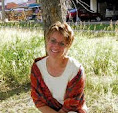World Water Day – March 22, 2011
The United Nations observes March 22 of every year as World Water Day, a day to focus on issues related to water such as access and conservation.
The objective of World Water Day 2011 is to focus international attention on the impact of rapid urban population growth, industrialization and uncertainties caused by climate change, conflicts and natural disasters on urban water systems.
This year theme, Water for cities: responding to the urban challenge, aims to spotlight and encourage governments, organizations, communities, and individuals to actively engage in addressing the challenges of urban water management.
This year theme, Water for cities: responding to the urban challenge, aims to spotlight and encourage governments, organizations, communities, and individuals to actively engage in addressing the challenges of urban water management.
One of the quintessential books to know about for World Water Day is One Well: the story of water on Earth by Rochelle Strauss (553.7 StO 2007).
This highly accessible book lays out the importance of water for plants, animals and us, for various habitats, and as essential to many of the natural processes/systems/cycles of the Earth.
As the Earth’s population grows, so does the demand for fresh water. It’s crucial that we become ‘Well Aware’, that water is not an unlimited resource and that fresh water is an extremely limited resource (about 97% is saltwater). The analogy of ‘one well’ is figurative as well as literal, as all the water on Earth is connected over time and space. The water we have today has been in the Earth’s system for billions of years. So, this is it. What we use (consume and pollute) today impacts the future of all living things on Earth.
I love the comparison chart showing who uses how much water in terms of buckets per day per person (Ethiopians use one 10 liter bucket per day, Nepalese use about 3 buckets compared to North Americans who use about 55 buckets per person per day). When looking at populations then, “North America has only one-third the population of Africa…[but] uses three times as much water… nearly 300 million people in Africa do not have access to enough freshwater.” (p. 21). This is a staggering statistic. “By 2025, many experts predict that one out of every four people will live in a country that is short of water. By 2050, 4 billion people may be living without enough clean water.” (p.22)
One Well has much potential for cross-curricular connections. Take a look:
math: ratios, percentages, statistics, measurement
science: natural resources, environmental issues such as pollution, ecology, biology (habitats, water cycle), energy.
social studies: current events, social justice issues, environmental issues such as conservation
language arts: analogies
Today is Nonfiction Monday, a round up of blogs focused on nonfiction children's literature. Today's event is at The Children's War. Lots of great books to check out.










2 comments:
I think that water issues are very important, but I hadn't heard of this global water day. I did read Linda Sue Park's A Long Walk to Water, which was based on a true story. It would be interesting to use the books together.
Thanks for dropping me a line with this recommendation. I've only recently come across the title A Long Walk to Water and added it to my 'To Read' list. I love it when fiction can added another layer to everyday life learning.
Tammy
Post a Comment